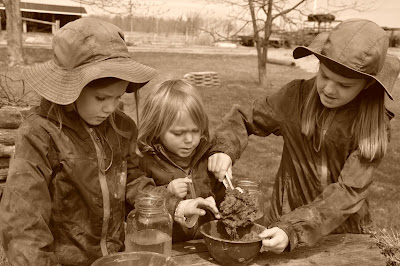Soil Science: Acid or Alkaline
We have what people call 'Haldimand Clay'.
Great if you want to make pots. Not so much if you want to grow food.
Though I didn't think much about it prior to planting orchard and gardens, it causes some trouble.
Probably why most folks out here are raising cattle, not growing gardens.
In order to amend the soil, we have to build up the nutrients with compost and manure and useful brown layers like leaves. We have even emptied our wood stove ash into the compost to increase beneficial, possible even loomy soil.
Vinegar
You can test if your soil is neutral PH (preferred), alkaline or acidic by fancy measures or by this simple science!https://www.thespruce.com/how-to-test-soil-acidity-alkalinity-without-a-test-kit-1388584
Though not precise to the numbers, it gave us a better understanding of what our soil might require.
The kids play with baking soda and vinegar, at least once a month.
They never tire of the reaction.
So I thought they might be keen and curious to help me test our clay situation.
Because of all of their experience with soda and vinegar, they were quick to understand what our clay is rich in if...
a) you pour in vinegar and it fizzes (clay too alkaline)
b) you pour in baking soda and it fizzes (clay too acidic)
FIZZ!!
Baking Soda
No Fizz (Just a few pockets of trapped air)
We concluded that our clay is more alkaline than acidic and requires sulfur and pine needles to help balance and bring it back to neutral.




